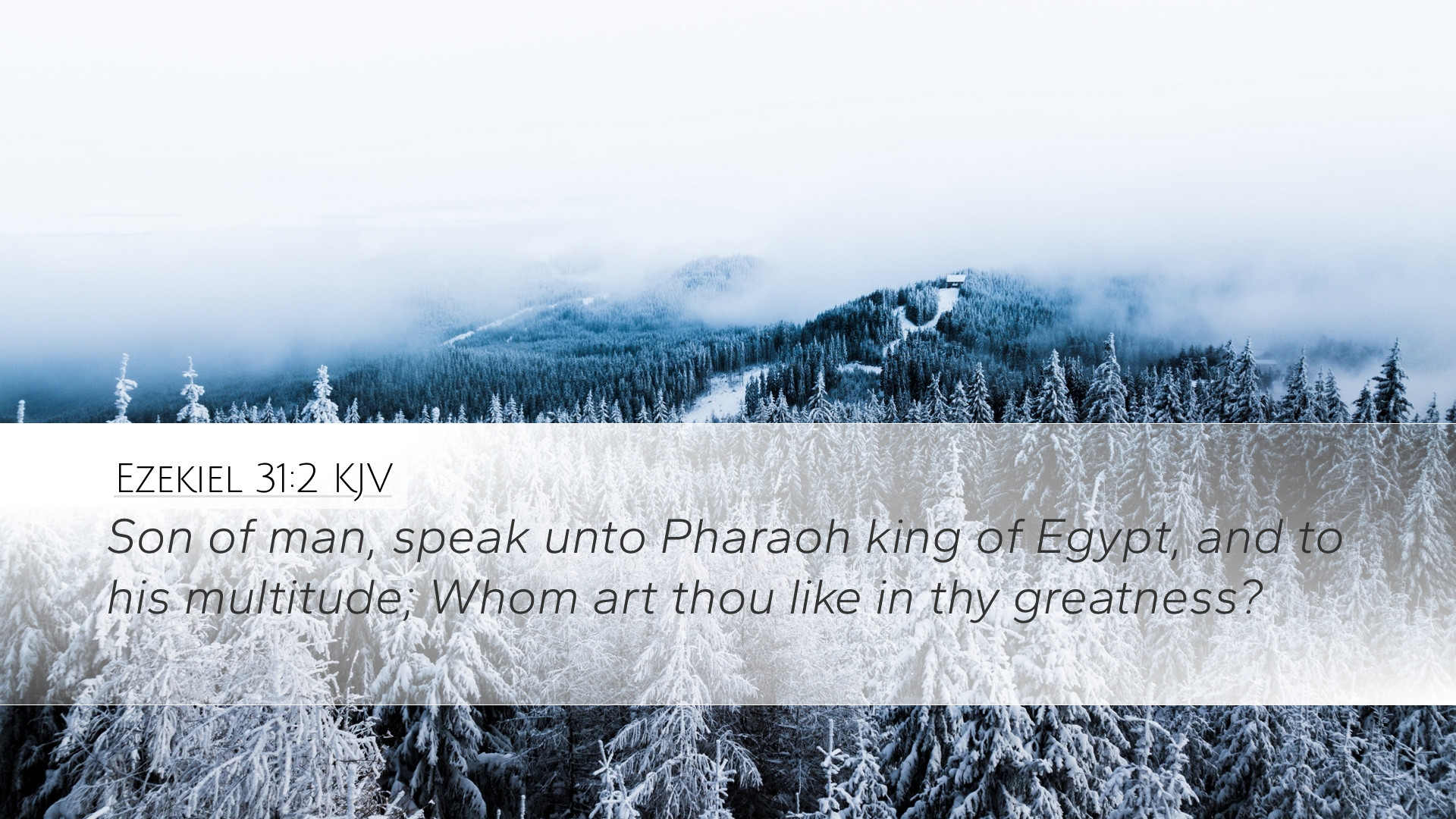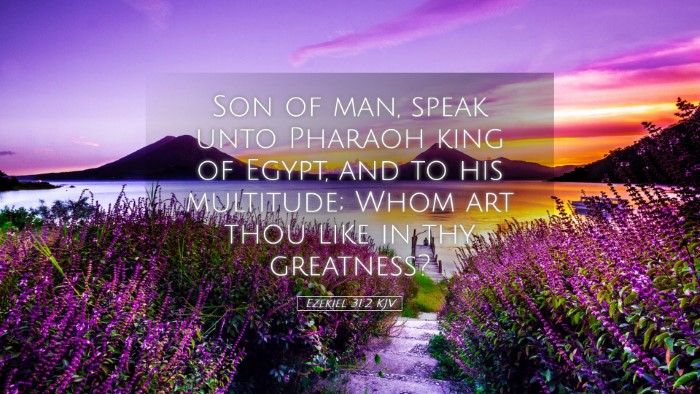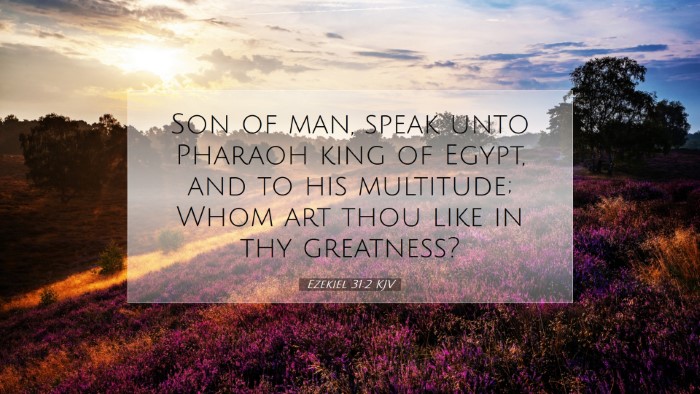Commentary on Ezekiel 31:2
Bible Verse: Ezekiel 31:2 (KJV) - "Son of man, say unto Pharaoh king of Egypt, and to his multitude; Whom art thou like in thy greatness?"
Introduction
The prophetic message in Ezekiel 31:2 serves as a potent reminder of the transience of human pride and power. Through the prophet Ezekiel, God addresses Pharaoh directly, employing a rhetorical question that invites reflection on the nature of greatness and human authority. This commentary consolidates insights from various public domain sources, including the works of Matthew Henry, Albert Barnes, and Adam Clarke, to deepen understanding of the verse's contextual and theological significance.
Contextual Analysis
Ezekiel, as a prophet, was primarily appointed to deliver messages of warning, judgment, and hope to the people of Israel during their Babylonian exile. Chapter 31 marks a significant shift where God draws a parallel between Egypt's looming destruction and the fall of Assyria, using the imagery of trees to symbolize greatness and downfall. Henry notes that the greatness of Egypt, represented by Pharaoh, is akin to the towering stature of a mighty cedar, but like all flesh, it is destined to decline.
The Imagery of Greatness
The use of botanical imagery in this verse is essential for understanding. The “greatness” of Pharaoh is likened to a majestic tree. As Barnes elucidates, this metaphor hints at power that is both visible and seemingly invincible, reminiscent of the towering cedars of Lebanon, famous for their strength and durability. However, this grandeur is juxtaposed with mortality and vulnerability, suggesting that even the strongest can fall.
- Moral of the Image: Just as trees fall, so too do kingdoms and rulers.
- Implication for Egypt: Despite Pharaoh’s might and authority, he is ultimately limited and subject to divine judgment.
Rhetorical Question
The question posed, “Whom art thou like in thy greatness?” is not merely an inquiry but a profound challenge. It compels Pharaoh to consider his position among the great powers of the earth. Clarke interprets this as God’s way of humbling Pharaoh, underscoring the futility of pride and the need for humility before the Creator. It echoes throughout scripture as a reminder that ultimate authority lies with God alone.
Theological Implications
This verse highlights essential theological principles regarding the sovereignty of God over nations and rulers. Henry emphasizes that God's dominion extends beyond Israel to all nations, illuminating that no earthly power can stand unchallenged before God’s will. The question calls for reflection on the ephemeral nature of earthly positions and the certainty of divine judgment.
- Sovereignty: God has authority over all nations, and His plans will prevail.
- Humility: Human greatness is but a fleeting shadow in the light of God’s eternal reign.
Application for Today
For contemporary readers, especially pastor and theologian, the text underscores the necessity of maintaining a posture of humility. In a world rife with pride, ambition, and the quest for power, Ezekiel’s message serves as a poignant reminder of the ultimate futility of such pursuits. Barnes notes that understanding our position in the grand narrative of God's plan is crucial. Leaders and ministers are called to reflect God's glory rather than their own.
- Reflection: How often do we compare ourselves to others in terms of greatness or influence?
- Leadership: True leadership in the church and society should reflect the humility exhibited by Christ.
Concluding Thoughts
Ezekiel 31:2 encapsulates a timeless truth about the nature of power and the authority of God. As pastors, students, and scholars engage with this text, it implores deep reflection on the values of humility, the frailty of human greatness, and the overarching sovereignty of God in human affairs. It challenges one to consider one’s alignment with God’s purposes and the stance of humility and service, recognizing that true greatness is found not in authority but in obedience to the divine will.


